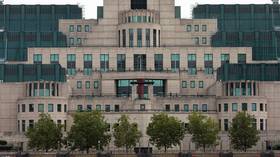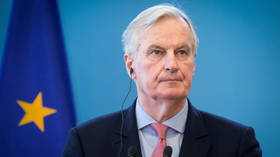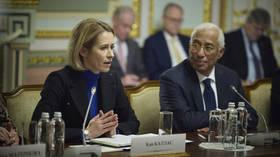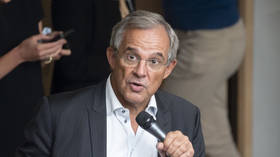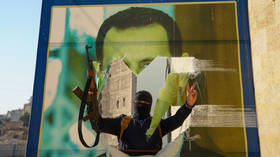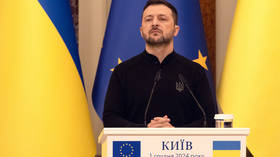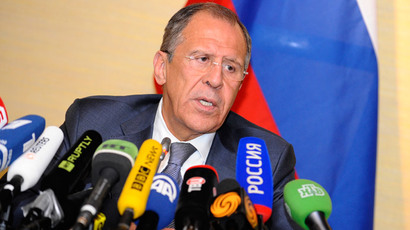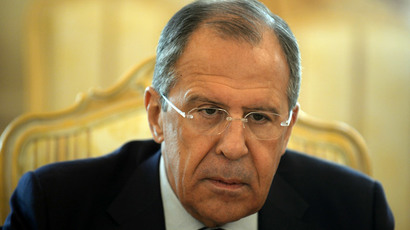Cold War diplomacy was easier to handle, Kerry says
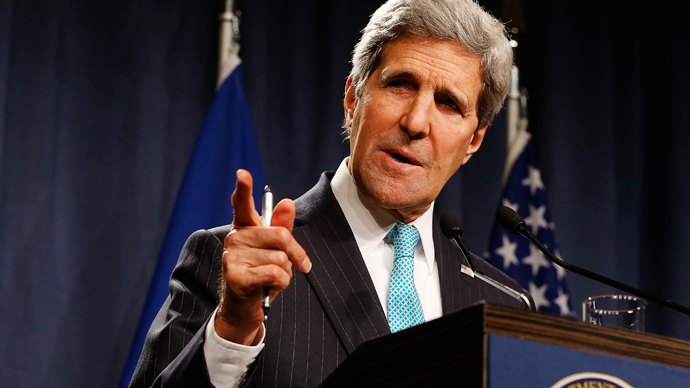
The top US diplomat has complained that Cold War diplomacy was much easier to handle than the challenges he faces today. John Kerry said that even bad decisions in the past led to victories, which are harder to achieve in a multi-polar world.
Speaking at the Quadrennial Diplomacy and Development Review (QDDR) Launch, which focuses mainly on academic debate in US foreign policy, US Secretary of State John Kerry stated that “during the Cold War, it actually – it may not have seemed so at the time, obviously, to great leaders, but it was easier than it is today – simpler is maybe a way to put it.”
“We could make really bad decisions and still win because we were pretty much the sole dominant economic and military power around,” Kerry said. “That’s not true anymore.”
Kerry said that during the era of mutually assured destruction “choices were less varied, less complicated, more stark, more clear.” He said everything was clear cut and split into camps “communism, democracy; West, East; the Iron Curtain, the great line of divide. And many things were subsumed and quashed by that force of that bipolar world.”
In today's world, US foreign policy is more complicated as “the vast array of challenges that we face today as the world is witnessing this explosion of sectarianism, religious extremism, radical ideologies, and frankly too many failed states and failing states – a vast challenge to governance, sometimes even witnessed here in our nation’s capital,” Kerry stated.
“So we have to really navigate our way through this much more complicated world…a world where change is coming at us much, much faster,” he said, adding that the US will have to become “strategic, proactive” and particularly “efficient,” to tackle the challenges of multipolarity.

“So this is a review of how we’ve been doing things, but it’s also a preview of what State and USAID need to do in order to put the United States of America in the strongest position to face the challenges and seize the opportunities of tomorrow,” Kerry concluded.
Meanwhile, off the academic debate and in the field, Kerry in a telephone conversation with Russian Foreign Minister Sergey Lavrov stated that he has “deep concern” over “Russia's failure” to de-escalate tensions in Ukraine, a senior State Department official told Reuters.
“He urged Russia to tone down escalatory rhetoric, engage diplomatically in the east with the OSCE and Ukrainian government, and issue public statements calling for those occupying buildings to disarm and stand down in exchange for amnesty,” the source said.
At the same time Kerry also spoke with Ukrainian self-imposed Prime Minister Arseniy Yatsenyuk and praised the productive and “important steps” Kiev has taken to ease tensions. Earlier on Tuesday acting Ukrainian President Aleksandr Turchinov demanded that special services “resume productive anti-terrorist operations” in the east of the country.
The Russian Foreign Ministry said despite praising the authorities in Kiev, Kerry did not offer any “specific evidence” to support his claims that Kiev is actually doing anything to de-escalate tensions.
Meantime, Lavrov urged his counterpart to use his influence in Kiev to force the authorities to “disarm militants of the Right Sector and other ultranationalist groups.”
Lavrov also stressed the need for “urgent action” from Kiev to fulfill last week’s Geneva agreement and to cancel “orders to use the army against the population” and to stop the persecution of pro-federalization protesters.



